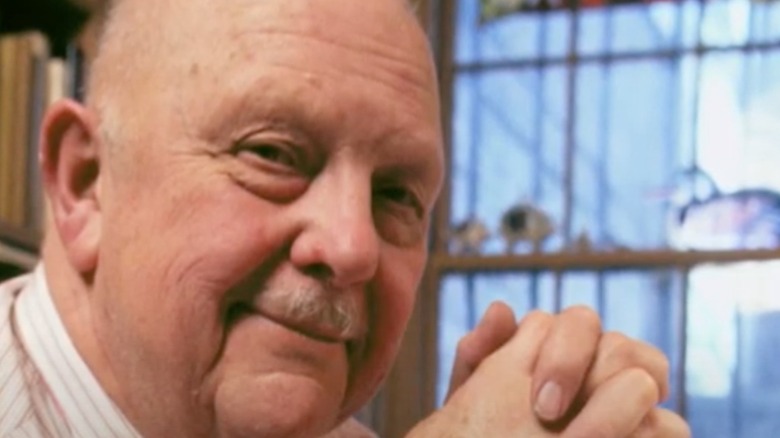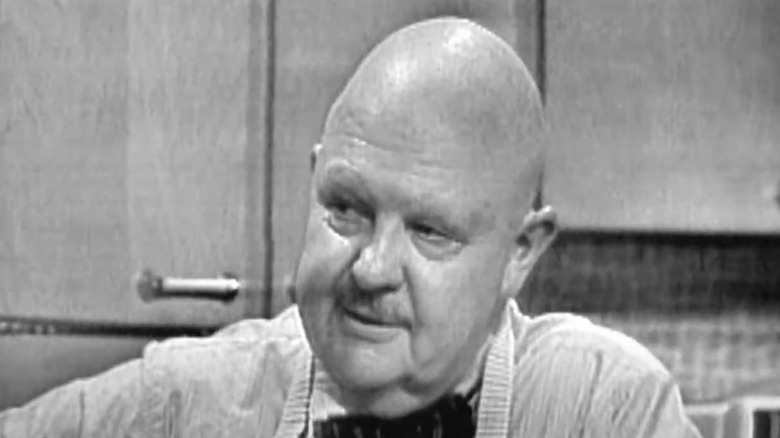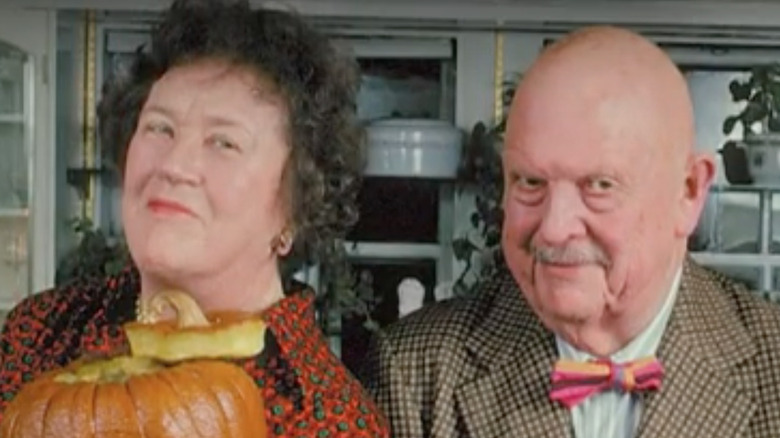The Chinese Cook Who Made An Impression On Young James Beard
In his autobiography, "Delights and Prejudices" first published in 1964, the man known as America's first foodie, James Beard, goes into great depth about one of his earliest taste memories: that of being bedridden with malaria and "refusing all food except spoonfuls of the most superb chicken jelly that ever existed." While Beard goes into mouthwatering detail about how the broth is cooked, cooled, and turned into jelly, Beard makes no mention of the man behind the dish, who was later revealed in a recently-published biography to be the family's Cantonese cook, Jue-Let, per New York Post.
Instead, Beard introduces Jue-Let as the chef his mother engaged after "turning her back on Europeans" to "begin a search for Chinese with deft hands and good references." Beard devotes pages to Let's skills as a cook: he raves about Let's vol-au-vent with oysters, and his sauté of wild mushrooms and chicken, as well as his curries and his terrapin stew. Of Jue-Let as a person, Beard only had this to say: "Let was a remarkable person who was later to become a part of our family. He was the one person Mother never could dominate... Somehow their volatile friendship prospered over the years, and Let, in his oblique way, even adored my mother."
James Beard only alludes to Jue-Let's role in his life
In John Birdsall's recently published biography, "The Man Who Ate Too Much," readers get a more in-depth introduction to "Let," according to The New York Times. The Times notes that Jue-Let introduced Beard to the foods and ingredients common to his native Cantonese cuisine, including "congee, steamed fish, and lychees." They go on to say that Jue-Let "instilled in Beard the culinary ethos of fresh and seasonal ingredients, carefully cooked." Those ideas would later be closely associated with Beard and the movement The Times called "The American food revolution of the 1970s."
But their relationship went beyond the kitchen. Kathleen Squires, who co-produced "James Beard: America's First Foodie," said conversations with Beard's friends revealed the depth of the relationship between the young boy and the Cantonese cook. Friends told the producer that Beard spoke of him as a father figure, per Saveur.
Jue-Let is not completely forgotten
So, how is the man who made such an impression on Beard virtually unknown? Birdsall says there are several reasons why so little is known about Jue-Let, particularly given his influence on the man who became known as the Dean of American Cuisine. One is that Jue-Let left to return to China while Beard was still young, and the other could have been because of the dismissive way Asians had been treated in the United States at that time, per Saveur.
But Jue-Let is not completely forgotten because, as Saveur points out, the Chinese cook is mentioned in several of James Beard's books. In "Delights & Prejudices," Beard reveals how much he missed Let, saying: "To this day, I feel the force of Let's personality, remembering how quietly he instructed my mother, never losing his integrity and strength in the face of her powerful personality. How I wish I had him around still."


